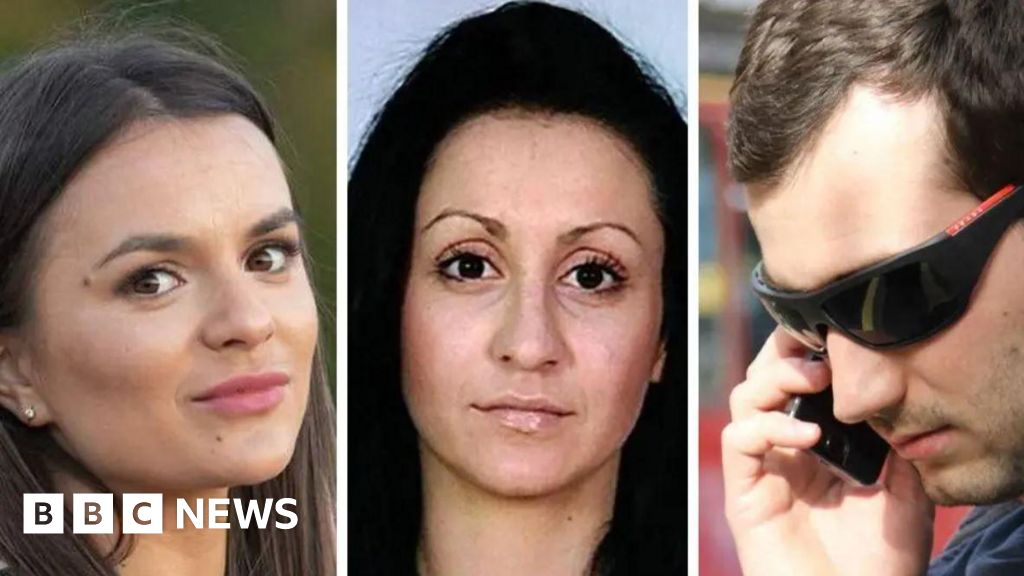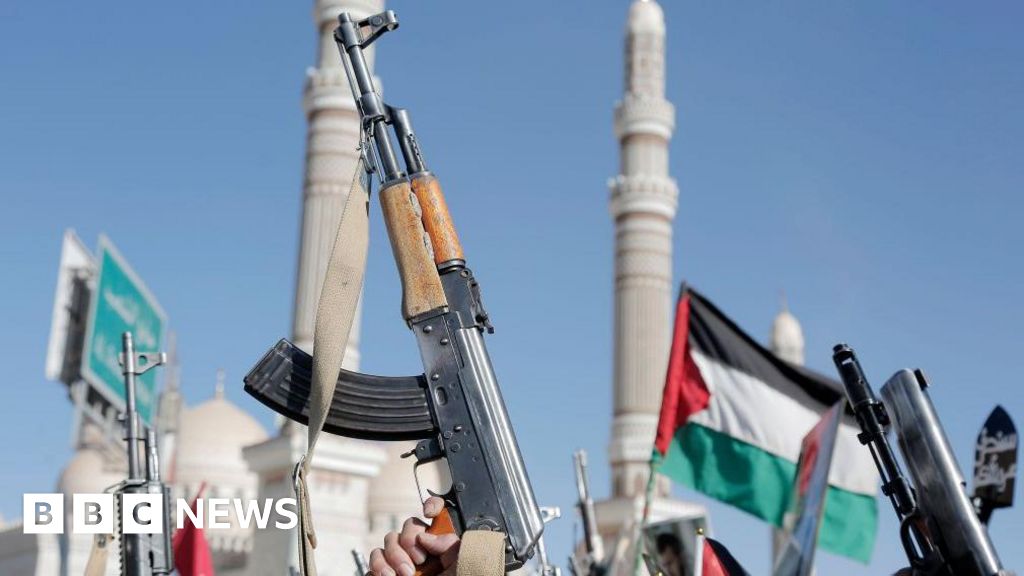ARTICLE AD BOX
WATCH: My son's killer gets to live. That's not justice
By Sam Cabral & Alexandra Ostasiewicz
BBC News, in court
The court was packed, but you could have heard a pin drop as victims waited for a verdict in the sentencing trial of the Parkland school shooter.
It was the culmination of nearly five years of trauma, as jurors decided whether the gunman should spend the rest of his life in prison or be put to death.
The panel of seven men and five women voted 17 times in all, once for each murdered victim. Each time, they spared Nikolas Cruz, 24, from death row.
For victims' families, who had hoped the decision would resemble some form of reconciliation over the brutal attack, the decision has left them aghast.
"I'm disgusted with our legal system. I'm disgusted with those jurors," said Ilan Marc Alhadeff.
His daughter Alyssa, 14, died in the attack along with 13 other children and three educators. A first-year student at Marjory Stoneman Douglas High School in Parkland, Florida, she had dreamed of one day playing on the US women's national football team.
"You set a precedent for the next mass killing - that nothing happens and you'll get life in jail," Mr Alhadeff added.
Mass shootings are much too common in the US, but the shooting in Parkland on Valentine's Day 2018 was different.
While such attacks tend to reignite the gun control debate in this country, partisan rancour around the issue typically sees it fizzle out within about a week. That was not the case here.
A new youth movement demanding stricter gun laws, led by the school's students, kept the topic top of mind for weeks, if not months. Tens of thousands of Americans joined protests in several major cities calling for an end to gun violence.
In the months and years since, lawmakers at the state and national level have passed modest reforms but have steered clear of more ambitious proposals.
The pain has of course been especially acute for the families who lost loved ones that day.
Many of them have sat in court every day since the trial began more than three months ago, reliving in visceral detail - often through video and audio - how the attack happened.
On the first day of the trial, in July, some sobbed in their seats and others rushed for the exits as the very first evidence was played in court. One woman screamed "shut it off" as loud gunfire was heard in audio footage.
The atmosphere in court on Thursday was equally if not even more fraught with emotion.
Seated in the front rows reserved for them, families shook their heads in disbelief as Judge Elizabeth Scherer read out the jury's verdict, count by count.
Image source, Pool/Getty Images
Image caption,Debbie Hixon, whose husband was murdered at Parkland, reaches out to her sister-in-law as they hear the gunman will be spared the death penalty
On each count, jurors acknowledged the crime that had been committed as well as how its brutal and premeditated nature warranted a death sentence for the gunman. But the defence team argued "mitigating circumstances" - including lifelong abuse and mental health disorders - outweighed the crime itself. The jury agreed.
Tom and Gena Hoyer lost their son, Luke, in the massacre and were present to hear his killer's fate.
"It's been a bad day. I'm as stunned as I was the day Luke was killed," Mr Hoyer told the BBC.
"I'm heartbroken, I'm stunned. I can't believe they gave a cold-blooded killer more mercy than the 17 victims he killed," Mrs Hoyer said.
When the judge read the verdict aloud, many observers were confused about what the result was because of the complex legal language. But the Hoyers knew exactly what she was saying. Prosecutors had explained to them what to listen for.
"I was waiting on that one question to hear 'yes' or 'no'. And I couldn't believe it," Mrs Hoyer said.
Their son Luke was the very first name read in court. When they heard no to the death penalty, they held out hope that another, more extreme death might still earn a capital sentence - meaning the gunman would still be executed.
Mr Hoyer waited and hoped until almost the end of the charges, when they read the name of Peter Wang, who was shot four times in the head. The gunman had said he watched his head explode like a water balloon.
The verdict remained life in prison.
Tom and Gena Hoyer lost their 15-year-old son, Luke, in the Parkland shooting
"Our justice system should have been used to punish this shooter to the fullest extent of the law," said Tony Montalto, who lost his 14-year-old daughter Gina in the shooting.
"Not as an act of revenge, but to protect our nation's schools and to stop others from attacking the future of this country."
As the judge spoke, Mr Montalto - who now heads a non-profit advocating for school safety reforms - was seen in the fifth row shaking his head vigorously and wrapping his arm around his wife Jennifer.
Corey Hixon got up and left the room when he heard the killer would receive a life sentence, not the death penalty, for his father Christopher's murder.
The elder Hixon - the athletics director at Marjory Stoneman Douglas High School and a former US Navy reservist who once deployed to Iraq - died after running towards the gunfire in an effort to shield students.
Mr Hixon's widow Debra said: "What this verdict says to me is that [the gunman's] life meant more than the 17 that were murdered, the 17 [others] that were shot, and the thousands of people in that school and community that are traumatised every single day."
Parkland parents 'devastated' and 'shocked' by sentence
The trial at the Broward County Courthouse - some 30 miles south-east of the scene of the shooting - was an extremely rare legal proceeding.
The gunman had already pleaded guilty on 34 criminal counts - 17 counts of murder and 17 counts of attempted murder - last October, so jurors were only deciding his sentence.
The last time a mass shooter faced a trial of this kind was in 2017, when the white supremacist who fatally shot nine black churchgoers in Charleston, South Carolina, was sentenced to death.
But this was the deadliest shooting ever to go to trial. That's because most attackers are either killed by law enforcement in the course of their rampage or take their own lives in its immediate aftermath.
Another individual who killed 23 people at a Walmart department store in El Paso, Texas, in 2019, could face a similar trial next year.
The Parkland trial was delayed and slowed on several occasions, including by the Covid-19 pandemic and Hurricane Ian a fortnight ago.
Jury selection began in April and it took nearly three months to winnow down 1,800 people to a panel of 12, with 10 alternates. In turn, those 22 jurors heard more than three months of testimony.
Sequestered and without access to mobile phones or television, the jury deliberated for roughly seven hours before recommending a life sentence, without the possibility of parole.
A formal sentencing will take place on 1 November, but many left Thursday's proceedings feeling deflated.
Fred Guttenberg told the BBC last year he "won't ever stop" fighting to honour his daughter Jaime's memory.
The 14-year-old's death has transformed Mr Guttenberg's life and he is now one of the most well-known advocates for gun control in the country.
"I was prepared for the rest of my life to seek justice," he said after the verdict. "And I could not be more disappointed in what happened today."

 2 years ago
88
2 years ago
88








 English (US) ·
English (US) ·